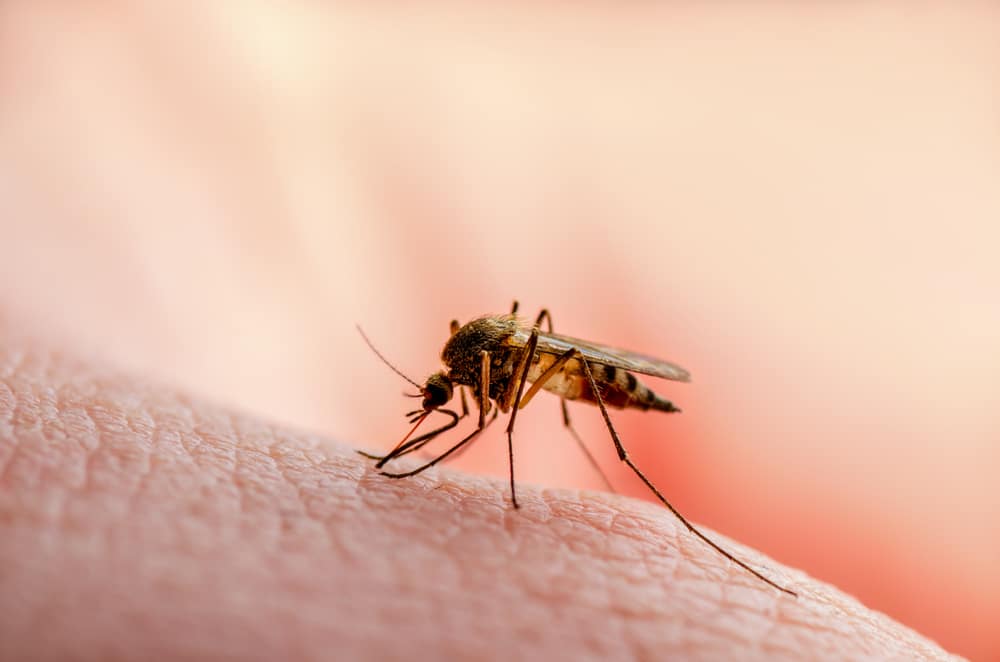Hope that malaria could be eradicated forever has been given a boost after new findings from a vaccine trial showed a high-rate of efficacy.
Researchers from the University of Oxford and their partners have yesterday (September 8) reported new findings from their malaria vaccine R21/Matrix-M phase 2b trials following the administration of a booster dose.
They say a malaria vaccine booster dose at one year following a primary three-dose regime maintained high efficacy against the disease and continued to meet the World Health Organisation’s Malaria Vaccine Technology Roadmap goal of a vaccine with at least 75% efficacy.
Plasmodium species
Mosquitoes carry the malaria parasite and they have been alongside humans for thousands of years with the disease first documented as early as 2700 B.C. The disease causes hundreds of thousands of deaths every year caused by the parasites in the Plasmodium species – single-celled organisms with multiple life-stages, requiring more than one host for survival.
Gareth Jenkins, director or advocacy at Malaria No More UK, said: “Almost half a million children died from malaria in 2020 and yet, with the right mix of treatments and prevention deployed at the right time, in the right places, this disease could be eradicated for ever.”
“British science has long been at the forefront of producing the ever more effective tools that can transform lives. Today’s R21 vaccine results from Oxford’s renowned Jenner Institute are another encouraging signal that, with the right support, the world could arrive at the destination of ending child deaths from malaria in our lifetimes.
Fighting global diseases
He added that recent YouGov polling showed that an overwhelming majority of Brits – 74% – want to see international leadership from the UK’s next Prime Minister in fighting global diseases, with two-thirds choosing increasing UK health security and pandemic preparedness as one of their top reasons to invest in global health.
He added: “But for new British inventions to achieve their historic potential, they need strong programs and health systems to ensure that the children that need them get them.
“For that, British leadership must continue, not least at the imminent September U.S.-hosted conference that will decide funding for the world’s malaria programs through the Global Fund to Fight AIDS, Tuberculosis and Malaria – a highly effective global institution which Britain was a founding member of and has since supported with what’s been needed to achieve great success.”
New PM: foreign policy test
He said the conference will be new PM Liz Truss’s first foreign policy test.
“For the sake of millions of children’s lives, global health security, and British relations with its closest ally, it’s a test she cannot fail,” he said.
Quinine, a substance that comes from the bark of the cinchona tree, has been known to be effective against malaria since the 1600s. Scientists have focused on vector control – hypothesizing that by killing the vector, it would halt the cycle of infection. Insecticides and bed nets have been used as protection and a cost-effective solution. This new breakthrough could change this.
Corine Karema, interim CEO of the RBM Partnership to End Malaria, said: “Today, the fight against malaria is at a precarious juncture, partly due to limited funding, biological threats including insecticide and drug resistance, as well as the ongoing disruptions from the COVID-19 pandemic.
“Yet, thanks to ongoing innovation, we have a pipeline of new tools to help address these threats, including the R21 vaccine candidate. We are grateful to the Jenner Institute for its ongoing dedication to the malaria response; these latest findings of the phase 2b trials are promising, and we look forward to the results of the phase 3 trials.
No silver bullet
“There is no silver bullet, nor one size fits all approach in the fight against malaria; we know that ending the disease for good requires diverse, data-driven approaches, including tailoring the use of existing tools, innovative interventions, and strategies that can be optimized to the local context to maximize impact. If approved, R21 will add another tool to our vaccine toolbox to be used alongside other malaria control tools and future innovations.
“Countries and partners must continue to prioritize investments in malaria R&D and step up their commitments at the Global Fund’s Seventh Replenishment Conference this September in order to combine the roll out of existing tools and scale up of new innovations to achieve a zero malaria world.”





